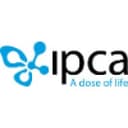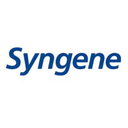Post Graduate Diploma in Infectious Diseases
OR
Prepared by Docthub Courses Team ∣
Last updated on 30 May 2025
Overview
The Post Graduate Diploma in Infectious Diseases is designed to enhance the knowledge and skills of healthcare professionals in the prevention, diagnosis, and management of infectious diseases. The duration of the program is generally a year but may vary depending on the institute offering the program. The curriculum includes topics like microbiology, epidemiology, and public health principles related to infectious diseases.

Table of Content
What is a Post Graduate Diploma in Infectious Diseases?
The Post Graduate Diploma in Infectious Diseases is an advanced-level qualification intended to provide healthcare professionals with specialized expertise in infectious diseases. The course covers critical areas like microbiology, immunology, bacteriology, virology, and epidemiology. It is an excellent choice for professionals aiming to specialize in the field of infectious diseases, whether for career development or to transition into the field of disease management and control.
Highlights
| Particulars | Details |
| Course Name | Post Graduate Diploma in Infectious Diseases |
| Course Type | Diploma |
| Course Duration | 1 to 2 years (depending on institution) |
| Eligibility | - MBBS, BDS, Nursing, or related healthcare degrees- Minimum 50% marks- 1-2 years of clinical experience (optional) |
| Admission Process | 1. Application submission2. Review of qualifications3. Interview/Entrance exam (if applicable)4. Final selection5. Fee payment |
| Fees | ₹50,000 to ₹2,00,000 per year (depending on the institution) |
| Top Colleges in India | AIIMS, New Delhi CMC, Vellore PGIMER, Chandigarh Manipal University, Manipal Tata Memorial Centre, Mumbai |
| Job Roles | Infectious Disease Specialist Public Health Consultant Epidemiologist Research Scientist Laboratory Director Global Health Specialist |
Eligibility
The eligibility criteria to enroll in the Post Graduate Diploma in Infectious Diseases typically include:
- Educational Background: A bachelor's degree in medicine (MBBS), dental sciences (BDS), nursing, or a related healthcare field.
- Minimum Marks: Candidates should have secured at least 50% marks in their qualifying examination.
- Work Experience: Some institutions may require 1-2 years of clinical experience in a healthcare setting.
- Age Limit: The age limit may range from 20 to 40 years, depending on the institution.
Duration
The duration of the Post Graduate Diploma in Infectious Diseases typically ranges from 1 to 2 years, depending on the structure of the course and the institution. It may be offered as a full-time, part-time, or distance-learning program.
Fees
The fee for the course varies from one institution to another. On average, it ranges from ₹50,000 to ₹2,00,000 for the entire program, with additional costs for study materials, examinations, and practical training.
Who Should Do a Post Graduate Diploma in Infectious Diseases?
This course is designed for:
- Healthcare professionals looking to specialize in infectious diseases, including doctors, nurses, and laboratory technicians.
- Public health professionals aiming to focus on infection prevention and control at the community or national level.
- Researchers and epidemiologists who wish to contribute to the study and management of infectious diseases.
Why Study Post Graduate Diploma in Infectious Diseases?
The benefits of studying this course include:
- Expert Knowledge: Acquire advanced knowledge in diagnosing, treating, and preventing infectious diseases.
- Career Advancement: This qualification opens up new opportunities in hospitals, research centers, and public health organizations.
- Global Importance: Develop the expertise to handle infectious disease outbreaks and make significant contributions to global health.
- Research Focus: Gain access to cutting-edge research in microbiology, immunology, and the management of infections.
Post Graduate Diploma in Infectious Diseases Entrance Exam
Most institutions offering this diploma do not require an entrance exam. However, some may conduct interviews or written assessments based on the candidate's qualifications. It is essential to verify the specific entry requirements for the institution of choice.
Admission Process
The admission procedure typically involves the following steps:
- Application Submission: Candidates need to submit an application form along with required documents.
- Review of Qualifications: The institution reviews the applicant’s academic credentials and work experience.
- Interview/Entrance Exam: Some institutions may conduct an interview or entrance exam to assess candidates.
- Final Selection: Based on the performance in the interview or test, candidates are selected.
- Course Fee Payment: After selection, candidates need to pay the course fees to confirm their admission.
Post Graduate Diploma in Infectious Diseases Syllabus
The syllabus generally includes the following topics:
| Year/Semester | Core Topics Covered |
| Semester 1 | Introduction to Infectious Diseases Microbial Pathogenesis Immunology Bacteriology Virology Clinical Management of Infectious Diseases
|
| Semester 2 | Mycology Epidemiology of Infectious Diseases Antimicrobial Therapy Infection Control and Prevention Global Health and Emerging Infectious Diseases Research Methodology in Infectious Diseases |
Top Post Graduate Diploma in Infectious Diseases Colleges
Some of the leading institutions offering the Post Graduate Diploma in Infectious Diseases are:
- All India Institute of Medical Sciences (AIIMS), New Delhi
- Christian Medical College (CMC), Vellore
- Postgraduate Institute of Medical Education and Research (PGIMER), Chandigarh
- Manipal University, Manipal
- Tata Memorial Centre, Mumbai
Post Graduate Diploma in Infectious Diseases Scope
Graduates of the program have various opportunities in:
- Healthcare Facilities: Working in hospitals, clinics, and healthcare centers to manage infectious diseases.
- Public Health: Participating in public health programs for infectious disease prevention and control.
- Research: Engaging in scientific research related to infectious diseases and emerging infections.
- International Health Organizations: Working with organizations like WHO and CDC to address global health challenges.
Further Study Options
After completing the Post Graduate Diploma in Infectious Diseases, candidates can pursue:
- MSc in Infectious Diseases
- Doctoral Research in Microbiology, Virology, or Epidemiology
- Specialized Fellowships in Infectious Disease Management
Career Opportunities After Post Graduate Diploma in Infectious Diseases
Career prospects for graduates include roles such as:
- Infectious Disease Specialist
- Public Health Consultant
- Epidemiologist
- Research Scientist
- Laboratory Director
- Global Health Specialist
Salary
The salary for a professional holding a Post Graduate Diploma in Infectious Diseases varies depending on location, experience, and the role:
- In India: Typically ranges between ₹5,00,000 and ₹12,00,000 annually.
- Internationally: The salary can range from $50,000 to $150,000 annually, depending on the country and level of expertise.
Explore colleges for this course
Quick Go Links

Explore this course by location..
by States
by Cities
Related Job Roles
Related Job Vacancies
View All 177 Jobs

FAQS
What is the difference between a Post Graduate Diploma and a Master's degree in Infectious Diseases?
A Post Graduate Diploma is a shorter, more focused program, while a Master's degree offers broader academic exposure and may involve research components.
Is work experience required to pursue this course?
Work experience is not mandatory but is often beneficial for candidates with prior healthcare experience.
Can I pursue this course through distance learning?
Yes, some institutions offer distance learning options for this diploma.
What are the career prospects after completing this course?
Graduates can work in hospitals, research organizations, public health agencies, and international health bodies, specializing in infectious disease management.
Is this course suitable for non-medical graduates?
The course is generally intended for medical and healthcare professionals, but some institutions may accept candidates with a background in biological sciences.
Related Course titles

Qualifications
MBBS
Related Specialty
Pediatric Infectious Diseases
Infection Control
Veterinary Infectious Diseases
Infectious Diseases Pharmacy






